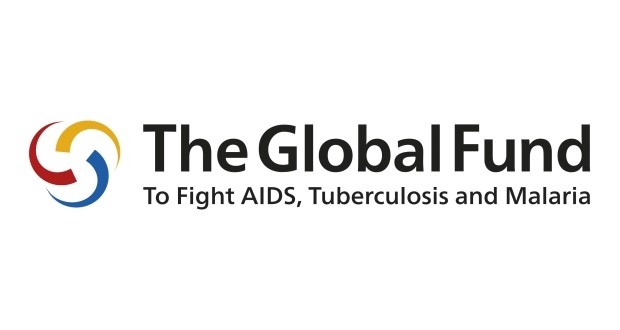An independent audit unit within the Global Fund has found problems with health projects run by the UN Development Programme (UNDP) in South Sudan, saying the UN agency spent money on buildings and equipment that have gone unused and on activities that are poorly run.
The Global Fund to Fight AIDS, Tuberculosis and Malaria is the world’s largest financier of anti-AIDS, TB and malaria programs. It is supported in part by private donations by US tech billionaire Bill Gates, and by donor governments.
Global Fund’s Office of the Inspector General based in Switzerland released an audit report this month on Global Fund grants to South Sudan. The report looks at the effectiveness of donations by the Global Fund since 2005, amounting to eight grants of USD 289 million. Four active grants were audited, three managed by UNDP and the fourth by NGO Population Services International (PSI).
In three of four categories (performance, health services, and oversight and management), the auditors ranked the grantees at the second-lowest rating in their rating scale, just above “ineffective.” The auditors explained in the central section of their report that donated funds have been invested in construction of buildings that remain vacant, training of health workers who leave their jobs and purchases of equipment that are often used improperly or not at all.
The auditors found that 26 of 46 buildings constructed under a more than $40 million grant to UNDP either have defects and/or are not in use. Some buildings were built in areas that are now insecure, others were built far away from populated areas, while others have serious design flaws such as a maternity clinic with corridors too narrow to push a bed through.
In some of the donor-funded buildings they found evidence of “poor workmanship, [poor] quality of materials, and inadequate maintenance.” The auditors further stated, “Agreed upon commitments by the government for provision of utilities and maintenance of the buildings have not been honoured.”
These failings prompted the auditors to question whether such donations are appropriate. “This raises the question of whether activities of a development nature should be prioritized in such challenging operating environments over service delivery, for example, putting more people on treatment,” reads the audit report.
In spite of this, UNDP continues to construct health infrastructure in South Sudan, including 17 buildings currently under construction or under procurement, according to the auditors.
Donated equipment lies idle
The Global Fund audit report goes on to say say that donated health care equipment was not being used at facilities visited by the auditors for a variety of reasons, including lack of electricity, improper installation, break-down, or lack of qualified staff to operate it.
For example, the Global Fund paid for chemical analyzers, hematology analyzers and CD4 count machines, many of which were not being used at clinics visited by the auditors.
Additionally, the auditors found that some equipment had gone missing, for example, 15 computers disbursed under an HIV grant that have not been recovered from Ministry of Health staff, as well as 134,000 missing bed nets that could not be accounted for by one of the international organizations.
‘Ineffective’ partnerships
The auditors pointed out that partnerships with South Sudanese governmental health facilities to distribute malaria test kits were “ineffective,” explaining, “This is partly due to the civil unrest and the weak coordination of kit distribution by the relevant Principal Recipient and other partners.”
The report highlights this as a public health concern, saying that treating malaria without confirmatory tests “raises the risk of developing drug-resistant malaria.”
In the field of HIV/AIDS treatment, the auditors found that the grants supported “ineffective community outreach mechanisms,” noting that only 6 out of 22 supported anti-retroviral therapy facilities had functional community health outreach teams at the time of the audit and even these six teams were “not fully effective.”
Supported TB programs also missed the mark. The auditors reported “inadequate” collaboration between TB and HIV programs, resulting in failures to treat HIV patients. “The referral mechanisms between the 22 antiretroviral therapy sites and 87 TB clinics is ineffective as evidenced by only 35% of TB-HIV co-infected patients receiving antiretroviral therapy.”
‘Ineffective’ training programs
The Office of the Inspector General further reported on the “ineffectiveness of training interventions,” pointing out that “trained [government] staff resign soon after the training which is due to, amongst other things, remuneration challenges.”
“While the loss of trained staff to the market strengthens the wider health sectors in South Sudan and neighboring countries, it does not address the specific skills shortages that the grant was meant to address,” reads the audit report.
The full report by the Office of the Inspector General is available for download below.
UNDP defends development work
UNDP is one of several development agencies that have chosen to continue working in South Sudan even after the outbreak of civil war in 2013. The agency’s country director in South Sudan Balazs Horvath last year argued that international donors should continue to engage in long-term development projects, saying to abandon them would be a mistake.
Speaking during a visit to Washington, DC, last April, Horvath said he saw “institutional capacity building” as critical to South Sudan’s stability. “UNDP’s work in the country has focused on building the capacity of the government,” reported DC-based development company Devex in a summary of his remarks at the time of the visit.
Related:
UNDP South Sudan deflects blame for health project failings




